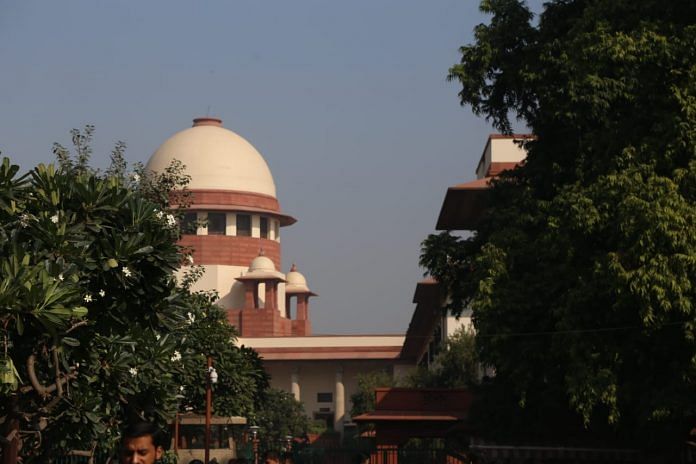New Delhi: The Supreme Court Tuesday asked the Centre to “treat with urgency” the issue raised in the pleas challenging home ministry’s March 29 notification asking private establishments to pay full wages to workers during the COVID-19 lockdown, saying lot of people are affected by it.
A bench headed by Justice Ashok Bhushan, conducting hearing through video-conferencing, asked the government to file its response on the petitions and posted the matter for hearing next week.
Attorney General K K Venugopal told the bench, also comprising Justices S K Kaul and M R Shah, that the Centre has issued a new notification on May 17 which supersedes the March 29 Ministry of Home Affairs (MHA) order.
“Treat this with urgency. Lot of people are affected,” the bench told Solicitor General Tushar Mehta, who was also appearing in the matter.
The apex court had on May 15 observed that the March 29 notification, directing companies to make payment of full wages to workers even while not being in operation during the lockdown period, was an omnibus order and there was a larger question involved which needs to be answered.
It said there may be small industries which are affected due to the lockdown and if they cannot earn, how are they going to pay wages to their workers.
It had also observed that if government does not help these small companies, then they might not be able to pay their workers.
The counsel appearing for one of the petitioners had argued that firms are going out of work as they do not have orders for production of goods and they are being prosecuted due to the government circular.
An association of Micro, Small and Medium Enterprises (MSMEs) has said in its plea before the apex court that the MHA order was passed without due care and deliberation on the financial implications for employers.
The small industrial units have said that making full payments would lead to their closure, which, in turn, would cause permanent unemployment and adversely affect the economy.
The association has further contended that during this unprecedented situation, various governments across the globe have taken measures for the benefit of workers/ employees, but the Centre without taking any such step has put the entire burden on the employers/ owners to pay full wages.
The top court on May 15, while hearing a plea filed by Hand Tools Manufactures Association, comprising of MSMEs, on the issue had asked the government not to take any coercive action against them for failing to pay full wages to its employees till next week.
It said on Tuesday that its interim order of no coercive action would continue.
Also read: Let states do it — Modi govt could take same route for land reforms like it did for labour




Honorable Supreme Court’s judgement will become a precedent for payment of wages during future disasters. Clearly it needs to be constitutional and fair. IMHO there are following issues:
Legality: Can the Government force private businesses to pay wages to workers even when business was shut and no work was done due to Government’s own order? Is that constitutional? Does it meet principles of natural justice? Is it sustainable?
Resource Use: Why didn’t government use ESI fund, paid by employers and employees to support workers during a disaster? Why didn’t government use many other funds, paid by citizens and businesses, at its disposal? Did government prepare any estimate of the burden it is placing on businesses (both organized and unorganized sectors)
Fair Wage: What is the fair wage to be paid to workers either by government or business in such situation? Should it be the statutory minimum wage, or one of various percentages provided in ESI or unemployment insurance, or should it be 100%? Is it right for government to now say that business and employee should negotiate?